Author: Nicholas Brandis
Ever since rock and roll first came into being, there have been critics who have objected to its artistic merit. These critics, with their holier-than-thou attitude, are quick to focus on the lyrics typically associated with rock and roll as the rationale for their denigration. They’ll call rock lyrics simplistic, unintellectual, aggressive, graphic, vulgar, and every other negative descriptor under the sun to call into question the quality and value of rock music. (The keen readers of you out there may notice that these exact same critiques mentioned here that were applied to rock and roll are now being applied to hip-hop, just as unfairly). So, if you are ever to encounter one of these pretentious, self-righteous critics who claim that rock and roll (or popular music in general) has no literary value whatsoever, I suggest you ask them just one question – have you listened to “Street Hassle” by Lou Reed?
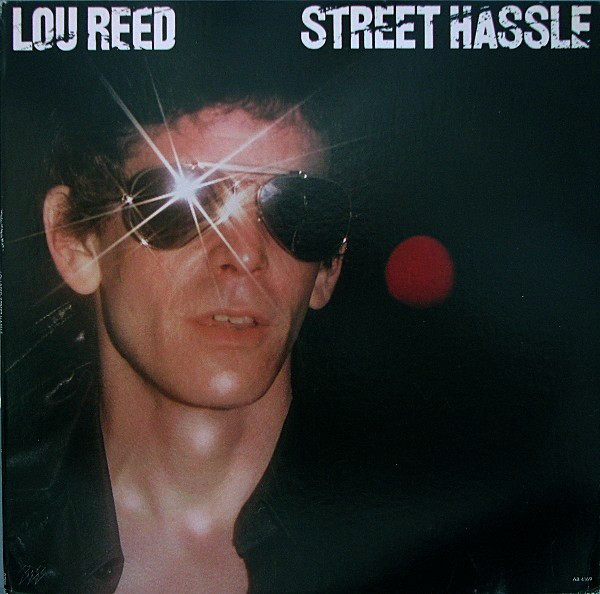
Lou Reed’s eighth studio album, Street Hassle (1978)
“Street Hassle” is a sprawling 11-minute epic off of Reed’s 1978 album of the same name, depicting the struggles and realities of living in the backstreets of New York City during the seventies. It paints a vivid picture of life during this era, through the lens of those on the fringe of society. It makes no attempt to cover up the warts or blemishes of this time and place – in fact it would be uncharacteristic for Reed to do so. Lou Reed of course challenged and subverted the norms of rock music from the very beginning – his work with The Velvet Underground has been lauded for its experimentation and foresight. The Velvet Underground were one of the first rock bands to include taboo subjects in their lyrics, art, and live performances. Referencing bondage, recreational drug use, addiction, and non-normative gender expressions and sexualities in their music, Reed and company brought to light so many topics that were previously unexplored in rock music. Although The Velvet Underground were controversial and did not initially sell many records, they have since been vindicated by the sands of time. The list of bands who have been influenced by the Velvets, either directly or indirectly, is incalculable and made more apparent with each passing year. But this is not an article about The Velvet Underground. With that necessary context established of Reed’s past, let me tell you why I believe “Street Hassle” is a masterpiece.
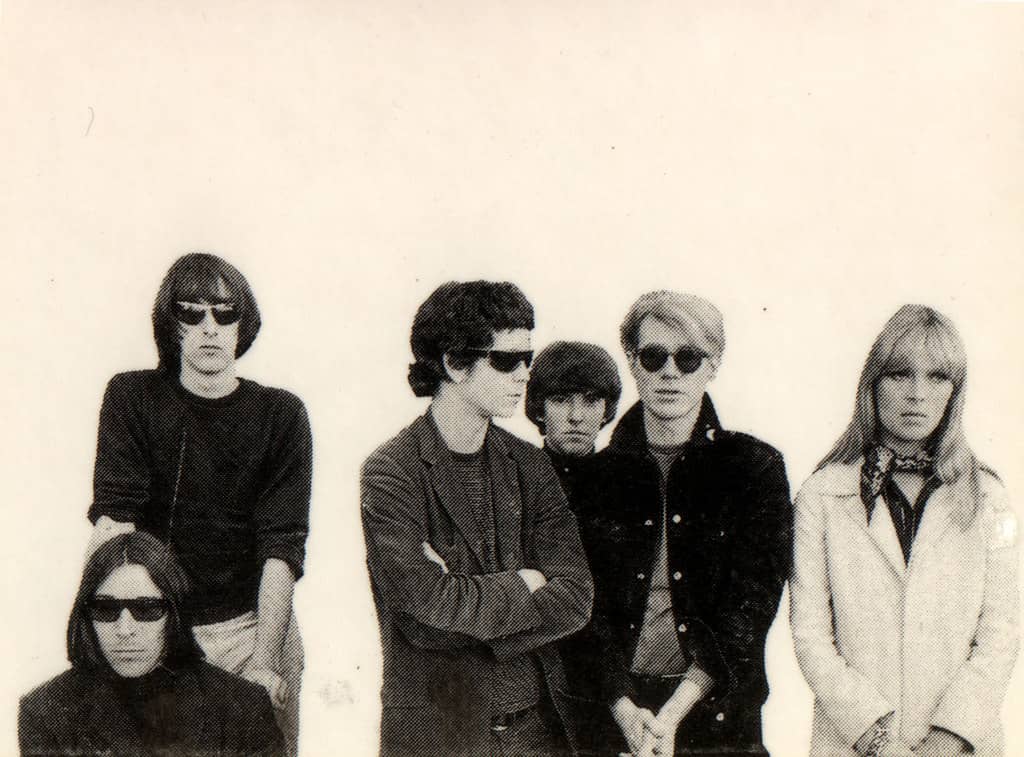
“Street Hassle” is broken up into three seemingly disjunct sections, which Lou brilliantly weaves together to tell a poetic and heartfelt story. Those three sections are, Part A: “Waltzing Matilda”, Part B: “Street Hassle”, and Part C: “Slipaway”. In many ways, “Street Hassle” is structured more like a book or a short story than a rock song. This was deliberate. On his 2003 live album Animal Serenade, before launching into “Street Hassle”, Lou had this to say:
“So I want to tell you a little bit about this song called ‘Street Hassle’. I wanted to write a song that had a great monologue set to rock. Something that could have been written by William Burroughs, Hubert Selby, John Rechy, Tennessee Williams, Nelson Algren, maybe a little Raymond Chandler. You mix it all up and you have ‘Street Hassle’.”
If you are familiar with the work of any or all of these iconic and iconoclastic authors, then their influence on “Street Hassle” (as well as on Lou’s work as a whole), is immediately apparent. They all confronted long-held traditions and expectations of literature to boldly create something new, incorporating into the literary canon stories about people and things that were considered untouchable before. What these authors did for literature, Lou did for popular music. These literary influences shine through on “Street Hassle”.
Part A begins whimsically, opening with the gorgeous sound of a cello, an instrument seldom heard in rock and roll. Only a few seconds in, “Street Hassle” is shaping up to be anything but a typical rock song. Lou introduces the characters in short order – a wealthy woman (the titular Waltzing Matilda) and an unnamed male prostitute. Lou chronicles their experience together, in a way that left me shocked when I first heard it. For starters, who else but Lou Reed was writing songs about sex workers at this time? Moreover, who else but Lou Reed was depicting these characters in his songs with the proper level of nuance and respect, as to afford them the basic human dignity they deserved? Reed describes the intimate night that the lovers share, poetically describing the experience with clever wordplay. Throughout the first part of the song, Lou sings the hopeful, jupilant expression “sha la la” over and over again, reminiscent of a sort of carefree adolescence that one might find in a song meant for children. We are led to believe that this is a happy song, but that will change in just a bit.
The final line in the “Waltzing Matilda” part of the song is a truly beautiful and rare thing. It is the first, and perhaps the only time, I have ever heard a rock and roll song include a sex worker in the lyrics and treat them like a human being. Reed neither endorses nor condemns prostitution, but rather acknowledges that it is a thing that exists, and that it does not need to be as negative as it has so long been perceived to be. By stating in the final line of the first part that, “Neither one regretted a thing”, Reed effectively humanizes people who have been shunned by society for so long. It is a powerful, compassionate act.
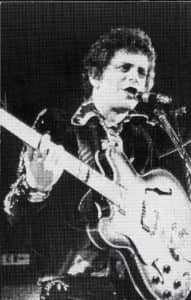
The tenderness found in the first part of “Street Hassle” is immediately contrasted with the middle section of the song, “Street Hassle”. Whereas “Waltzing Matilda” ended hopefully and gently, “Street Hassle” is a rude, and tragic, awakening. The “sha la la’s” are no more, and the tone of this song has decidedly shifted. The bleak realities of the backstreets of NYC in the 1970s come to the forefront in this section. The second part of the song describes the death of a woman after a drug overdose. Reed describes the situation from the perspective of someone who observed this fatal overdose, who has a strange reaction to it. The normal, appropriate response to seeing someone in this state would be to help them out, or at least show some concern about the situation, right? Nearly the opposite occurs in “Street Hassle”. This unnamed character shows no concern whatsoever that someone has died, except for the fact that the death occurred in his home. For instance, one of the lyrics in the song, sung by Reed in a sluggish manner is, “And it’s not like we could help / But there was nothing no one could do / And if there was, man, you know I would have been the first”. It’s evident that this man made no attempt to save the woman. He has a casual, unsympathetic reaction to the woman’s overdose, as if it is something he sees everyday. Maybe it is something he sees everyday. Maybe that’s the point.
Reed paints a picture of an apathetic, unapologetic drug addict, totally unconcerned about the impact he has on other people. Caring only about himself, he even suggests to the recently deceased woman’s partner that he should “grab your old lady by the feet / And just lay her out in the darkest street / And by morning, she’s just another hit and run”. Avoiding the consequences of his actions at all costs, this man is depicted to be irredeemable. While his actions are most certainly deplorable, and have resulted in the death of at least one person (and perhaps more), Reed offers some insight at the end of the second part to help explain how and why this man’s life is the way that it is, and why we shouldn’t be too quick to judge.
I think the final verse of the second part of the song is worth including in its entirety. Lou sings, “You know, some people got no choice / And they can never find a voice / To talk with that they can even call their own / So the first thing that they see / That allows them the right to be / Why they follow it / You know, it’s called bad luck”. Here, Lou acknowledges the fact that people oftentimes find themselves in poor circumstances through no fault of their own. The man in the song, who casually and nonchalantly reacts to the death of someone in his home, didn’t start out detached to the world. Due to the bad luck (as Lou calls it) he has received in his life, he went down the wrong path, resulting in the person who he is today. Lou shows an incredible amount of empathy here to all those who have gone down the wrong path, an empathy not often shown to them, although they may be the people who need it the most. Those who have been placed in bad environments, those who are impoverished, those that come from bad families – they have all been dealt a bad hand in life, they all have been recipients of bad luck. Reed knows this, and it is represented perfectly in “Street Hassle”. Just like the characters in the “Waltzing Matilda” part of the song, the characters in “Street Hassle” should have had a happy ending, but life got in the way.

The final part of “Street Hassle” is called “Slipaway”, and it represents the emotional height of the song. It is perhaps the most sincere and personal Reed has ever appeared on tape. Whereas the first two parts of the song posit Reed as the narrator of other people’s lives, chronicling their experiences on Reed’s metaphorical street, the final part appears to be told from the perspective of Reed himself. “Slipaway” is a passionate plea to an ex-partner, desperately begging them to come back. While the loss of love is a topic commonly explored in popular music, there is something in the impassioned cries of Reed that makes “Slipaway” particularly heartfelt and compelling. Before breaking into those impassioned cries though, Reed recruits help from a special guest.
“Slipaway” opens with a surprise verse from The Boss himself, Bruce Springsteen. Though Springsteen was never officially credited (due to an ongoing legal battle Springsteen was involved in at the time), it is an essential part of the song, setting up Reed’s finale perfectly. Springsteen even makes a call back to one of his own songs, “Born to Run”. In the final line of his verse, Springsteen, with a deadpan delivery, says, “Joe, tramps like us, we were born to pay”. When asked by David Fricke in an interview with Rolling Stone how and why Springsteen became involved, Reed revealed, “Because if I’d done them, they’d have come out funny. And when he did it, it sounded real.” Whatever the reasoning behind the choice to include Springsteen was, I am elated that the greatest artist from New York and the greatest artist from New Jersey were able to collaborate, if just this one time.
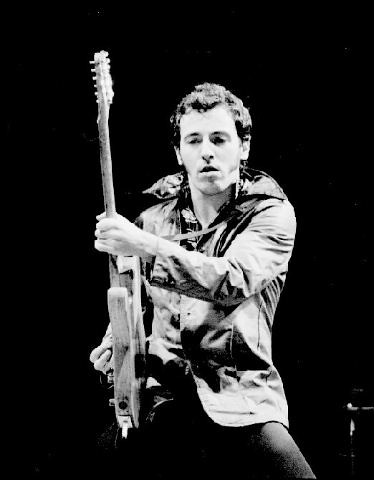
After Springsteen’s brief rap, Reed returns to finish the song, in glorious Lou Reed fashion. Lou laments the fact that “Love has gone away”, fervently asking his former lover not to slip away. An interesting thing to note here, in the penultimate verse, is when Lou sings, “But oh how, I miss him, baby”. Lou’s use of the male pronoun here implies that the lover that Reed is begging to come back is another man. Throughout the course of his life and career, Lou’s sexuality has been up to speculation. Songs such as “Candy Says” with The Velvet Underground and “Walk on the Wild Side” from Lou’s solo career emphasize Lou’s sexual ambiguity, as does “Street Hassle”. Reed didn’t defy expectations only in his art. Lou lived the life that he sang about. Despite what was considered improper or uncouth at the time, Reed defiantly stayed true to himself, opening countless doors along the way for others to express themselves the way that they would like to. Imagine how boring the world would be without people like Lou. How dull would life be without songs like “Street Hassle”?
At this point, the song is nearly over. Lou once more cries out for his lover to come back to him, but we are never given the answer. After Lou’s final cry of “Please don’t slip away”, and the song has come to a close, we can only wonder what happens next. Does Lou’s lover return to him? Or are they forever gone? We don’t know, and we never will. I believe that this is a good thing. Lou keeps us in anticipation, so the possible interpretations are endless.
“Street Hassle”, in my opinion, is a literary masterpiece. Naturally, there are other rock and roll songs out there that can and should be considered literary masterpieces as well. A couple Bob Dylan songs come to mind immediately. That being said, few songs, if any, so accurately and so beautifully capture the emotions that are contained in “Street Hassle”, with the literary structure, creative story, and poetic lyrics to back it up.
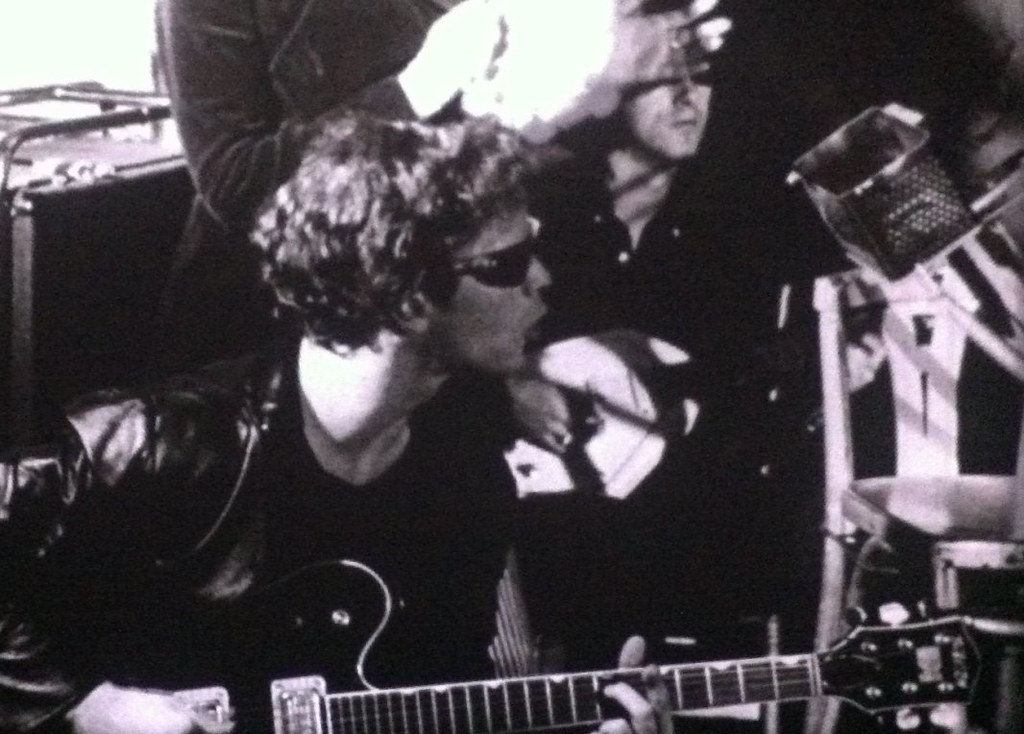
If you are reading this article on the day that it was published (March 2nd, 2022), then you are reading it on what would have been Lou Reed’s 80th birthday. Go listen to “Street Hassle” to honor his memory. Come to think of it, if you go and listen to any of the hundreds of artists that Lou influenced, you’re honoring his memory. Without Lou, music would neither look nor sound the way that it does today, and we as listeners are all the better for it. May this article serve as a tribute to Lou’s genius, and may we never let his memory slip away.
NICHOLAS BRANDIS | Excursions on a Wobby Rail Enthusiast | KXSU Music Reporter

